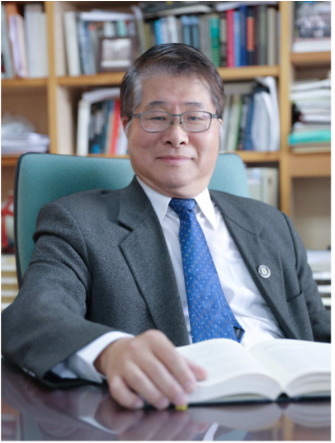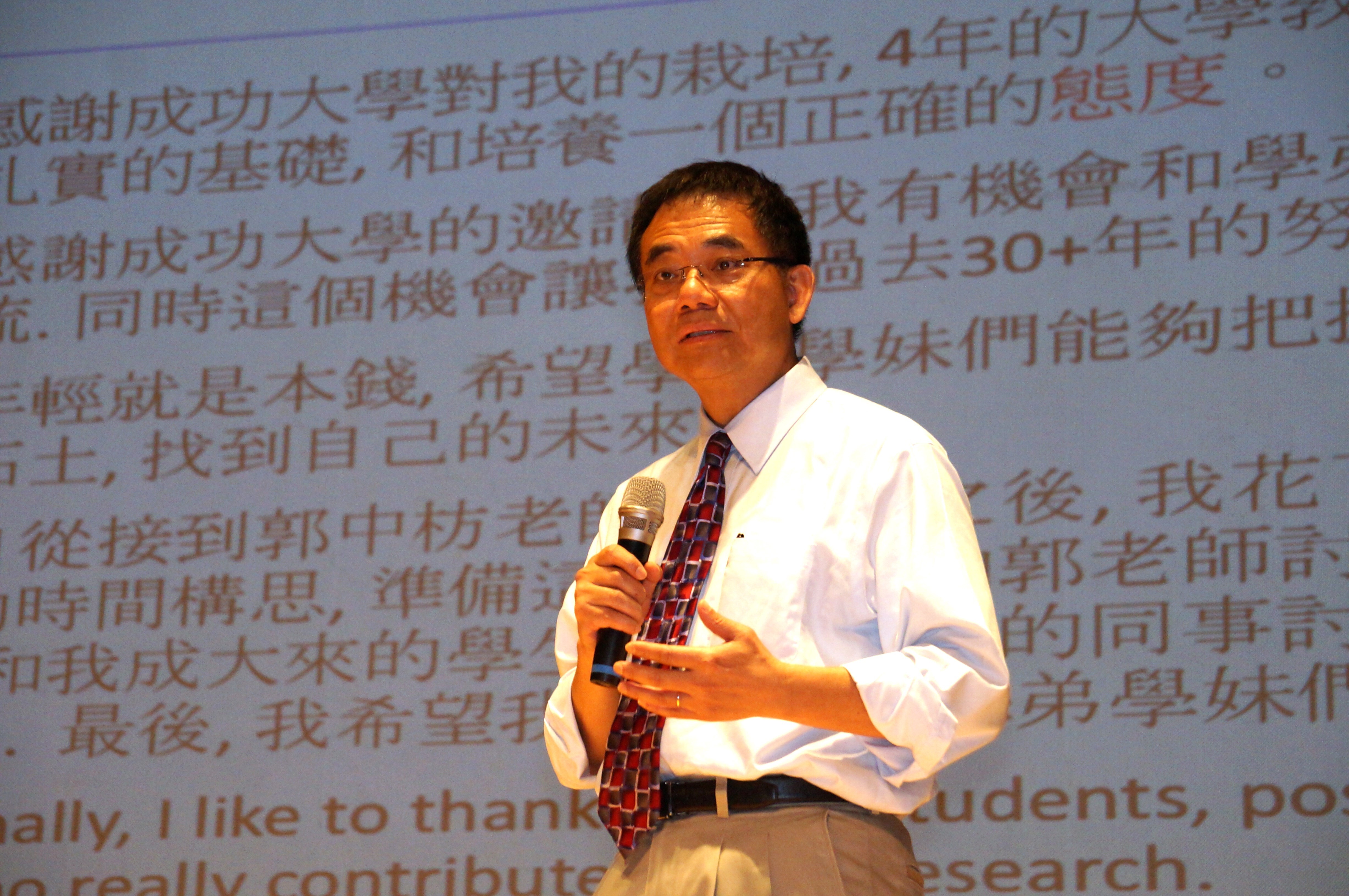NCKU Alumni Shin-Kun Peng and Yang Yang Elected as Academia Sinica Academicians
Written by Hsu Tsu-Yueh. Image credit to NCKU News Center.
The Academia Sinica has announced the 34th Convocation of Academicians. Shin-Kun Peng, an alumnus from the Class of 1979 of the Department of Transportation and Communication Management Science (TCM) at National Cheng Kung University (NCKU), was elected as an academician in the Division of Humanities and Social Sciences. Yang Yang, an alumnus from the Class of 1982 of the Department of Physics, was elected as an academician in the Division of Engineering Sciences. Both alumni have received the nation's highest academic honor, the lifetime honorary position of “Academician of Academia Sinica.” The entire faculty and student body of NCKU are immensely proud of this achievement.

Academician Shin-Kun Peng.Image credit to Academia Sinica
Academician Shin-Kun Peng holds a bachelor’s and master’s degree from the Department of TCM at NCKU. In 1985, he went to the University of Pennsylvania in the United States to further his studies and obtained a Ph.D. in Regional Science in 1989. Upon returning to Taiwan, he joined the Institute of Economics at Academia Sinica and has served there to this day. Since 2009, he has also been a joint-appointed professor in the Department of Economics at NCKU. His areas of expertise include regional economics, industrial economics, and international trade. He has received numerous recognitions, including the National Science and Technology Council (NSTC) Outstanding Research Award in Economics, the 53rd Ministry of Education (MOE) Academic Award in Social Sciences, was approved for the Academia Sinica Investigator Project Grant (5-year term), and the 3rd “Outstanding Paper Award in Taiwan Economic Research” from the Taiwan Economic Association.
“Shin-Kun Peng was very diligent and achieved excellent grades. We gave him the nickname ‘Deputy Director of the Library’ when he was a student,” reminisced Dung-Chun Tsai, an Emeritus Professor from the Department of TCM and Peng’s university classmate. He vividly recounted their past interactions and shared anecdotes without hesitation. Professor Tsai mentioned that he and Shin-Kun Peng have always kept in touch, even during their studies in the United States, despite being in different states, they would find time to visit each other. Shin-Kun Peng is a very nostalgic and sentimental person. This year marks the 45th anniversary of their university graduation. During a reunion in Taipei, Shin-Kun Peng even made coasters as gifts for everyone.
Professor Dung-Chun Tsai mentioned that although Shin-Kun Peng joined the Institute of Economics at Academia Sinica while he remained in the Department of TCM at NCKU, and despite their different academic fields resulting in fewer academic discussions and exchanges, they still frequently cared about each other. He expressed his genuine happiness and pride in his old friend receiving the nation’s highest honor in the academic community, being elected as an ‘Academician of Academia Sinica.’

Academician Yang Yang
Professor Yang Yang is currently a UCLA Distinguished Professor and The Carol and Lawrence Tannas Jr. Chair Professor. His expertise includes next-generation thin-film solar cells, organic/perovskite optoelectronic materials and components, and metal-oxide transistors. In 2016, he received the NCKU Distinguished Alumni Award.
Professor Yang Yang’s research on the “component efficiency of organic solar cells and novel perovskite solar cells” has set multiple world records. He is recognized worldwide as one of the outstanding leaders in the development of next-generation thin-film solar cells. He has made significant contributions to the field of photovoltaic solar components. Between 2005 and 2012, he advanced the power conversion efficiency of organic solar cell devices from less than 2% to exceed the 10% benchmark.
Distinguished Professor Tzung-Fang Guo from the Department of Photonics at NCKU pursued his Ph.D. under the guidance of Professor Yang Yang in the United States. Professor Guo always remembers Professor Yang’s attitude towards research, which embodied “integrity, rigor, proactivity, a constant strong curiosity, and always being prepared for the next step.” He describes Professor Yang as “a professor who is more diligent and serious than his students.” Professor Guo still adheres to his mentor’s academic spirit and holds himself to the same standards.
Provider:
NCKU News Center
Date:
2024-07-15